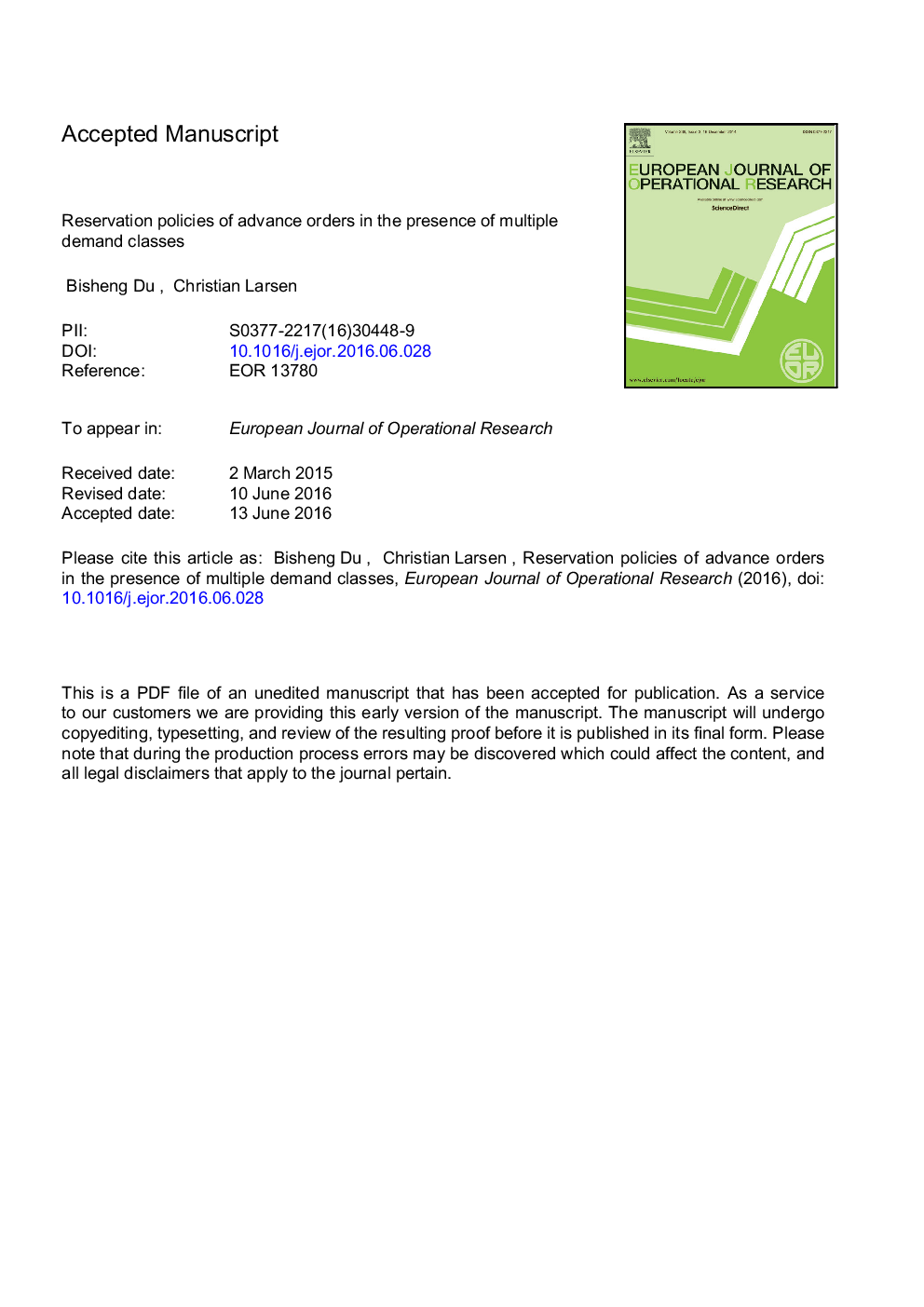| Article ID | Journal | Published Year | Pages | File Type |
|---|---|---|---|---|
| 4960218 | European Journal of Operational Research | 2017 | 23 Pages |
Abstract
We consider an inventory system where customers provide advance order information. Specifically each customer order contains two attributes: a request date when the order is received and a due date specifying when the customer wants the order delivered. We assume M different customer classes whose demands are generated by independent Poisson processes. All customers in the same class have the same constant demand lead-time (the difference between the due date and the request date), and all demand lead-times are less than the replenishment lead-time of the inventory system. The inventory system is operated as a base-stock system where a replenishment order is issued instantaneously upon the receipt of a customer order. A key characteristic is that customers with a long demand lead-time can be overtaken by customers with a shorter demand lead-time. Therefore, a potentially important issue is: should items in stock be reserved for specific order requests, and if so, when? Here it is understood that after the reservation, the item cannot be used to fill other customer requests. We describe a general reservation policy, meaning that to each customer class a given reservation delay arises between receipt of an order and the reservation. Assuming that the revenue of an order depends on the demand lead-time, we propose a profit optimization model where the expected profit is the difference between the expected revenue and the expected inventory holding costs. We derive the profit function for the general reservation policy and find the optimal base stock level and the reservation policy by exhaustive search. In our numerical results we find cases where, by using the general reservation policy, there are improvements by more than 5% compared to either making no reservations at all, or making a complete reservation (that is, reservation immediately upon receipt) of items to incoming orders. Our numerical results also show that instead of using a general reservation policy, one can, without much loss of optimality, resort to a simpler reservation policy, denoted Backward Delay, BD.
Keywords
Related Topics
Physical Sciences and Engineering
Computer Science
Computer Science (General)
Authors
Bisheng Du, Christian Larsen,
